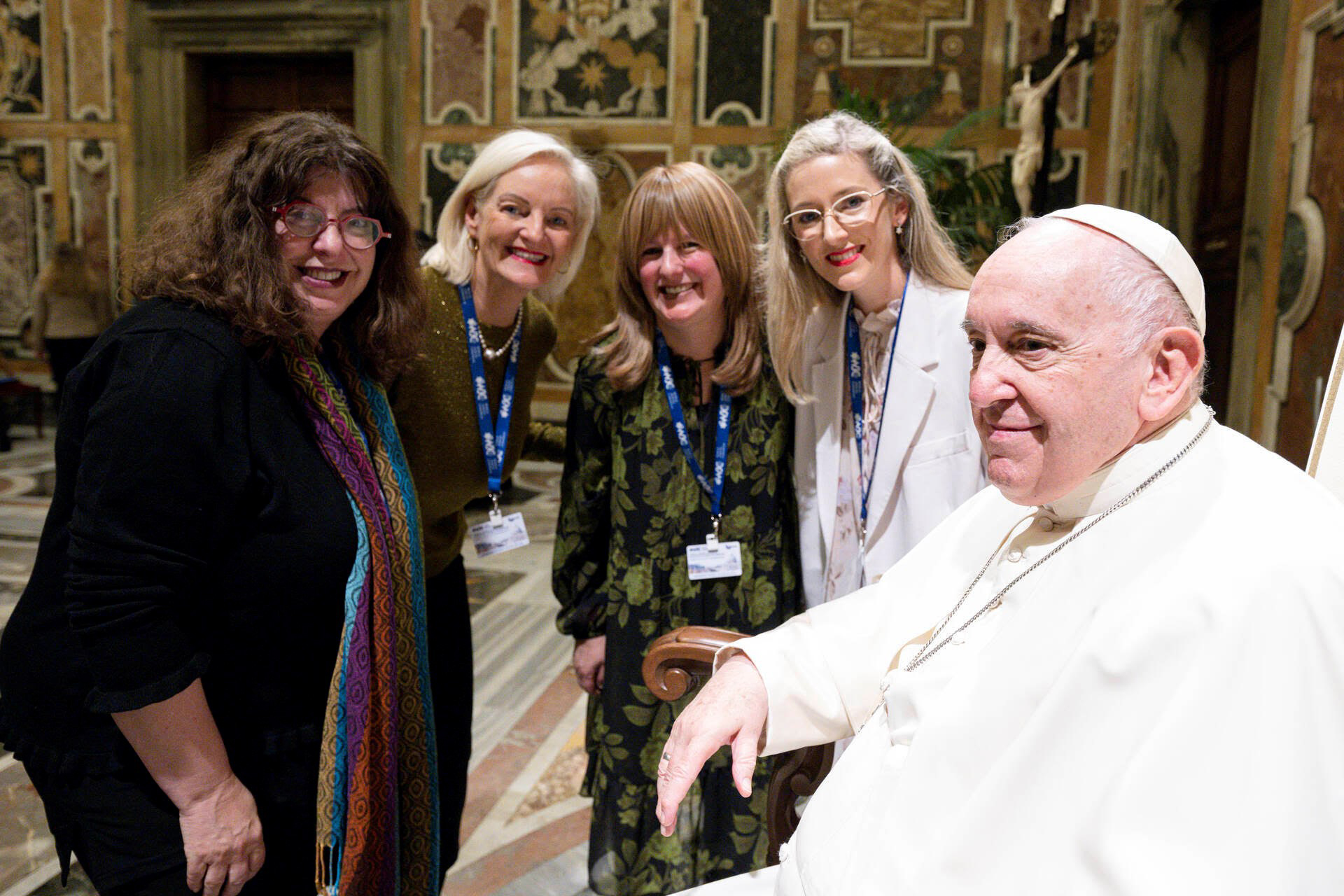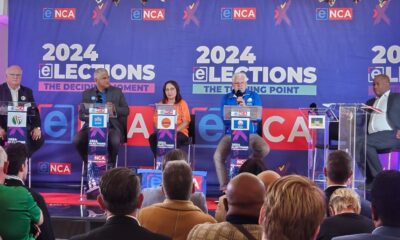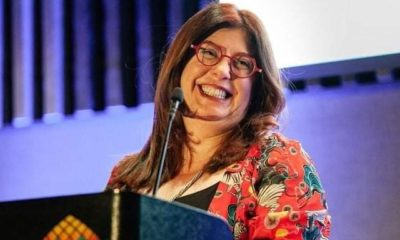
Banner

Revelations in Rome as Jewish leaders meet the pope
Enveloped by the surreal beauty of centuries-old hand-painted Italian frescos and spectacular marble, the World Jewish Congress (WJC) delegation of Jewish communal leaders from around the world waited expectantly for our audience with His Holiness Pope Francis in the heart of the Vatican’s Apostolic Palace.
The significance of this historic moment washed over me. It was a once-in-a-lifetime privilege not only to meet His Holiness, but to be a part of the first formal meeting of Jewish leaders held within the Vatican since its founding.
The WJC’s biannual executive committee meetings, which bring together the most senior leadership of Jewish communities and organisations across the globe, was held in Rome and the Vatican from 18 to 22 November. Beginning with Friday night prayers and a special Shabbat dinner with the Jewish community of Rome at the famous Great Synagogue, the proceedings culminated with an audience with the pope and the WJC executive committee meeting in the Vatican Synod Hall.
The WJC represents more than 100 Jewish communities. It works to foster unity and represent the interests of the Jewish people and to secure the continuity and advancement of our religious and cultural heritage. The executive committee meetings provide an opportunity for those gathered to share their best practice and experience and seek advice, support, and fresh ideas from other Jewish groups.
During the meeting, Ambassador Ronald Lauder launched the Kishreinu initiative, a Jewish response to the Second Vatican Council’s groundbreaking 1965 Nostra Aetate declaration. Nostra Aetate revolutionised the Roman Catholic Church’s relationship to the Jewish world, declaring that Jews weren’t guilty of deicide and “accursed” by G-d, and calling for an end to the persecution of people based on their religion or ethnicity. Kishreinu, which means “our bond” in Hebrew, is the WJC’s reply, seeking to strengthen ties between Catholics and Jews and use our shared spiritual heritage as a platform to collaborate to solve the challenges facing the world today.
Said His Holiness the pope, “Our two communities of faith are entrusted with the task of working to make the world more fraternal, combating forms of inequality, and promoting greater justice, so that peace will not remain an otherworldly promise but become a present reality in our world.”
In his address, Lauder expressed gratitude to the Catholic Church for its assistance at a time of rising Jew-hatred. “We don’t ignore it. We don’t forget. But we look forward, together. And what could possibly be better [than] for all the children of G-d to live together in peace, harmony, and in the house of the Lord, forever?” Cardinal Kurt Koch, the head of the Pontifical Council for Promoting Christian Unity, said, “With our shared heritage, we have a common responsibility to work together for the good of humankind, refuting antisemitism and anti-Catholic and anti-Christian attitudes, as well as all kinds of discrimination, to work for justice, solidarity, and peace, and to spread compassion and mercy in an often cold and merciless world”.
The WJC has prioritised interfaith engagement in recent decades, focusing on intensifying ties between world Jewry and the Catholic Church. In a further step towards co-operation, Lauder announced the creation of a WJC office in the Vatican. His organisation would work not only to enhance collaboration between Jewish leaders and the Holy See in international forums, but also to assist those most in need worldwide, including the victims of the war in Ukraine, he said.
Describing the significance of the meeting, Claudio Epelman, the WJC commissioner for interfaith relations, said, “Hundreds of Jewish leaders from all around the world are starting a process that will change the way Jews and Christians relate and share their daily lives in every town and city they live in. We’re grateful to Pope Francis for the invaluable symbolic gesture of being our host here today, and we’re confident that working together, we’ll create a better future for everyone.”
Yet, the complexity of relations between Jews and Catholics wasn’t glossed over, and Noemi di Segni, the president of the Union of Italian Jewish Communities, didn’t shy away from the dark past of religious intolerance.
“For our 2 000-year history, in Rome and in every other locality of the Italian Jewish community, the majestic walls of this Vatican City have always had a meaning of insurmountable limit,” Di Segni said. That physical limit that was substantially theological, ideological, of substitution, and thus of supremacy. Today, how much effort has been made to communicate, to convince that these walls can instead represent solidity and protection, translating closure into defence, persecution into recognition, silence into words of dialogue.”
Alongside the executive committee meeting, the WJC’s flagship programme, the Jewish Diplomatic Corps (JDCorps), held its first Inclusivity in Jewish Leadership seminar, focusing on women’s representation in communal structures. Discussions centred on how to achieve greater gender equity and diversity in Jewish leadership, with the WJC announcing Marie van der Zyl, the president of the Board of Deputies of British Jews, as its first commissioner on gender equality and inclusion.
As a steering committee member of JDCorps, I had the honour of co-chairing the Women’s Representation Task Team with my colleague, Deborah Lichentin, from France. I was proud of South Africa’s progressive track record of female Jewish leaders when South African Jewish Board of Deputies (SAJBD) vice-president and WJC executive committee member Mary Kluk, SAJBD National Chairperson Professor Karen Milner, and SAJBD National Director Wendy Kahn addressed a panel on the topic. In spite of the fact that only 10% of presidents of Jewish communities are female, the WJC executive committee has adopted a resolution on unity and inclusivity in Jewish leadership which includes a pledge to enhance the visibility and contribution of women leaders in various forums.
Another first was roundtable discussions led by members of the WJC’s NextGen Leadership Team, young Jewish leaders in their early 20s, who raised topical issues not usually discussed in mainstream Jewish organisations such as climate change, mental health, and threats to democracy.
Facing the difficult past of interfaith relations and the glass ceiling of gender and leadership head on, the WJC executive meetings tackled complicated topics with honesty and open-mindedness. The seismic shift in Jewish-Catholic relations as well as the groundbreaking strides in diversity in Jewish communal leadership will long be felt in coming months and years and provide a strong base from which we can continue to strive for a more just, equitable, and peaceful world. As the memory of the Vatican’s stained-glass windows and murals fades, the inspiration from the discussions within its walls will remain.








